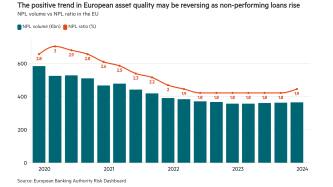Ever since the UK left the EU, bank watchers have asked if the cap on bonuses would be removed. The policy was introduced in 2014 by the EU as a solution to the risk-taking banks fell into in the run-up to the financial crisis of 2008–9.
Now the government has confirmed it will remove the cap with immediate effect at the end of the month. The timing of the announcement is intriguing, as one might have expected such a significant policy to be unveiled in the Autumn Statement on November 22.
One also might have thought it would be rolled out gradually, but the opposite has happened. Reactions have been mixed, with some welcoming it wholeheartedly, while others have given a more measured response.
The aim of axing the cap on banker bonuses is to boost the City of London’s international competitiveness and make the UK more attractive to foreign investors. Its relation to a series of other policies pursued by the government is well-known. These include making the listings regime more appealing and trying to direct UK pension funds towards investment in homegrown start-ups.
These efforts are all part of the Edinburgh Reforms agenda. The most positive reaction to the government’s abolition of the bonus cap came from UK Finance. “We support the removal of the bonus cap, which will ensure the financial services industry is globally competitive and make the UK a more attractive place to work for international professionals,” said a spokesperson.
“However, the UK’s seven-year deferral period compared to the EU’s shorter period remains a disincentive to those looking to relocate. We’re pleased to see that the financial regulators will take the deferral period into account in their wider review of the remuneration regime.”
Practical problems
Others are concerned about the implementation of the cap in practical terms. Lawyers have said there are thorny legal issues for HR managers. For example, what happens if bankers start to get different bonuses based on the new rule?
According to Dean Fuller, partner at employment law specialists Fox & Partners, HR departments will find answering that question a headache.
“HR teams are going to find any wholesale shift to bonuses a legal and practical challenge. You can’t unilaterally change such an important part of an employment contract without risking employment disputes along the way,” he says.
Mr Fuller also pointed out that many banks have become used to more predictable earnings through increased levels of a fixed salary.
Some may even resist a system where a much higher percentage of their compensation is based on a variable and usually discretionary bonus.
In terms of rolling out the policy, Mr Fuller suggests that banks will likely have to introduce higher bonuses slowly both for new hires and star performers.
“Bigger bonuses also bring the potential for more bitter and hard-fought legal disputes,” he adds. “The law has progressed somewhat since the cap on bonuses was introduced in 2014. Employees arguably now have more chance of successfully winning a case where they can show that their bonus is unfairly low or that they have been singled out.”
Aside from the HR perspective there are also issues for European banks with operations based in the UK. They will still have to operate under the EU bonus cap rules.
Bradley Richardson, partner in Linklaters’ employment and incentives practice, says: “The regulators highlight that removing the bonus cap brings the UK into line with the rest of the world other than the EU.
“The bonus cap which applies under the remuneration rules applied in the EU will, however, continue to apply, including for staff working in London but who are regulated under the EU rules.”
Not mandatory
Bank boards will also have to consider how they navigate these rules because they are not mandatory. Anindya Ghosh Chowdhury, director at financial services consulting Mazars, says firms may decide not to apply it.
“We might also see that some firms retain or relax the cap despite it not being a regulatory requirement, although this will compromise their ability to retain talent,” he says.
A negative consequence, however, is that higher bonuses will also increase firms’ staff costs, which is something they will look to avoid.
“This could be counterbalanced by greater revenues from increased risk-taking, meaning that firms are likely to discard the cap completely,” says Mr Ghosh Chowdhury. “And it is precisely this likelihood of increased risk taking that boards and regulators alike should be aware of.
“At the very minimum, firms might look to introduce new or enhanced risk key performance indicators that they can monitor internally, and also use effectively to demonstrate the maturity of their risk culture to third parties, such as the regulator.”
It will be fascinating to see what bank boards decide to do, alongside how the sector ultimately fares over the next couple of years.













